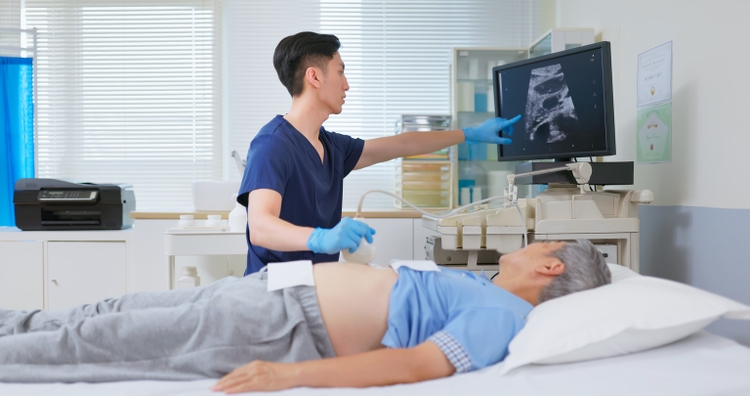By : Geraldus Sigap

Do you often feel nauseous, full quickly, or excessively bloated after eating?
It might not just be ordinary indigestion, beware of the possibility of Gastroparesis! This month marks Gastroparesis Awareness Month, a key moment to recognize the symptoms and understand the importance of early detection. Gastroparesis is a condition where the stomach fails to empty its contents properly, despite no mechanical blockage. As a result, food stays in the stomach too long, triggering various chronic gastrointestinal complaints.
Recognizing the Symptoms of Gastroparesis
Some common signs to watch out for:
- Frequent nausea and vomiting
- Feeling full quickly when eating
- Bloating and pain in the upper abdomen
- Unexplained weight loss
- Fluctuating blood sugar levels (especially in people with diabetes)
Faster and More Comfortable Diagnosis is Now Possible
Previously, diagnosing gastroparesis required invasive procedures such as endoscopy or gastric scintigraphy. Now, with Intestinal Ultrasound (IUS) technology, diagnosis can be done quickly, comfortably, and without invasive measures.
What Is Intestinal Ultrasound (IUS)?
IUS is a specialized ultrasound exam that visualizes stomach and bowel movement. The procedure is safe, radiation-free, and does not require anesthesia. Doctors can assess delayed gastric emptying, an indicator of gastroparesis.
Advantages of IUS:
- No needles or invasive instruments
- Radiation-free
- Can be done quickly in an outpatient clinic
- Ideal for children, the elderly, or those sensitive to invasive procedures
Intestinal Ultrasound (IUS) has also been recommended in the American Journal of Gastroenterology as a safe and effective method for evaluating gastric motility, particularly in diabetic patients and children. These advantages make IUS a preferred examination for the early detection of gastroparesis, without exposure to radiation or the need for invasive procedures.
Who is at Risk?
- People with type 1 or type 2 diabetes
- Those with a history of stomach surgery
- Individuals on medications that slow gastric motility
- Patients with neurological or autoimmune disorders
Don’t Ignore These “Mild” Symptoms
Gastroparesis is often misdiagnosed due to its similarity with common digestive issues. However, delayed treatment can lead to serious complications like malnutrition or poor blood sugar control. If you or someone close to you has persistent gastrointestinal complaints, consult a doctor for proper evaluation.
Consult the Internal Medicine – Gastroenterology team at RS Abdi Waluyo by calling 021-3144989 or schedule your appointment online through the following link: https://wa.link/rsabdiwaluyo
FAQ
- What is gastroparesis?
Gastroparesis is a condition in which the stomach takes too long to empty its contents, despite no physical blockage. It leads to symptoms like nausea, vomiting, bloating, and early satiety.
- What is the main cause of gastroparesis?
The most common cause is vagus nerve damage due to diabetes. Other causes include nerve disorders, gastric surgery, certain medications, or autoimmune diseases.
- How does Intestinal Ultrasound (IUS) help diagnose gastroparesis?
IUS uses sound waves to observe the movement of the stomach and intestines. It helps doctors determine if gastric emptying is delayed, key for confirming gastroparesis, without invasive procedures.
- Is IUS safe for all ages?
Yes. IUS is very safe, radiation-free, and suitable for children, the elderly, and even pregnant women.
- How is IUS different from endoscopy or gastric scintigraphy?
IUS does not involve inserting instruments into the body, uses no radiation, and delivers immediate results. In contrast, endoscopy and scintigraphy are more invasive and require more preparation and time.
Resource :
- Sullivan, A., Temperley, L., & Ruban, A. (2020). Pathophysiology, Aetiology and Treatment of Gastroparesis. Digestive diseases and sciences, 65(6), 1615–1631.
- Liu, N., & Abell, T. (2017). Gastroparesis Updates on Pathogenesis and Management. Gut and liver, 11(5), 579–589.
- Camilleri, M., Kuo, B., Nguyen, L., Vaughn, V. M., Petrey, J., Greer, K., Yadlapati, R., & Abell, T. L. (2022). ACG Clinical Guideline: Gastroparesis. The American journal of gastroenterology, 117(8), 1197–1220.
